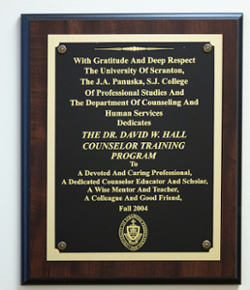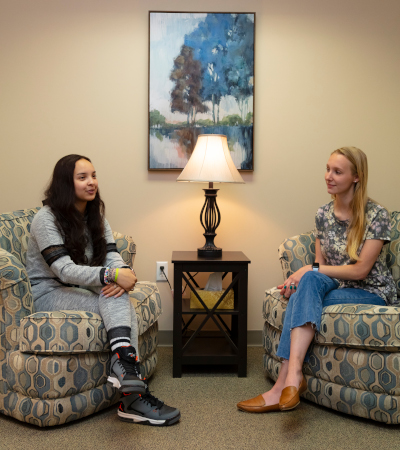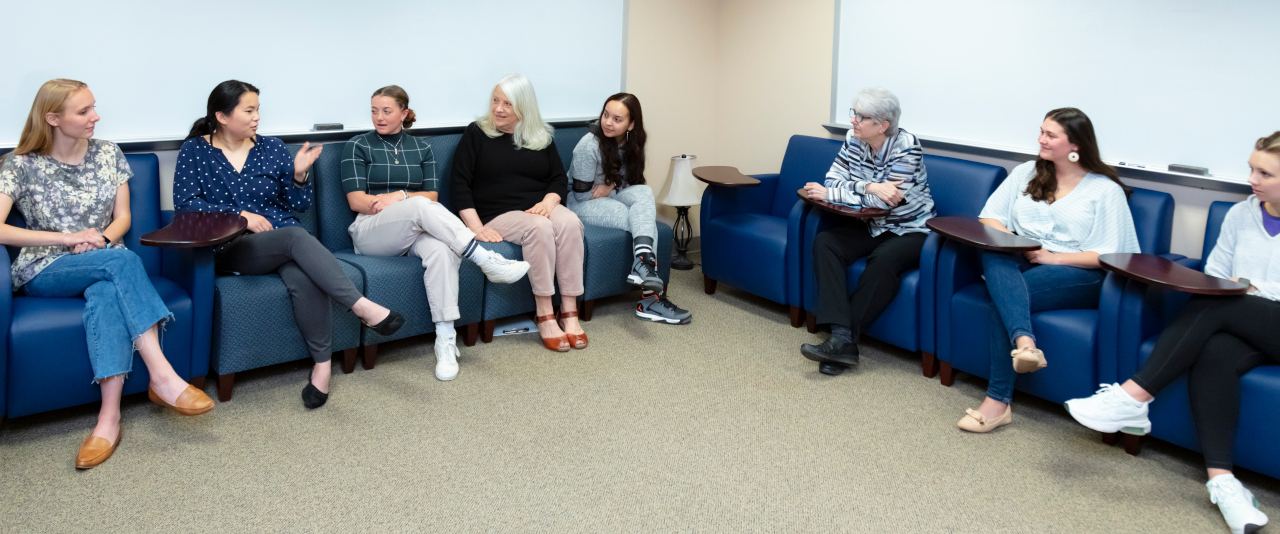The David W. Hall Counselor Training Center

Scranton's counseling and human services program is one of just a few in the nation to have its own counselor training center.
Our center provides facilities for clinical instruction in graduate counseling and undergraduate human services programs. It's a vital resource that emphasizes experiential learning and allows our students to grow in a place where theory and practice intersect.
The center is used primarily for graduate practicum students in our Clinical Mental Health, Clinical Rehabilitation and School Counseling programs.
The center's intent is to train "tomorrow's counselors today," with a focus on quality experience. Emphasis is placed on intensive supervision to facilitate the growth of skill, confidence, and ethical practice.
The center is used for various classes each academic year, including:
- Counseling and Interviewing Skills (graduate)
- Group Process and Practices
- Case Management and Interviewing (undergraduate)
- Individual Assessment
- Group Dynamics
Our Facilities

- two group counseling rooms
- eleven individual counseling rooms
- two individual supervision rooms
- one group supervision room
- office space for graduate student enrolled in practicum
The center is equipped with Panopto, a video capture technology that allows graduate practicum students to record sessions with clients.
Panopto technology enriches the practicum experience and offers graduate counselors-in-training a unique opportunity to re-watch their counseling sessions. This helps students to continually improve their skills and also allows faculty supervision to be more intentional and thorough.
Who We Serve
Our graduate students work with different client populations drawn from within the University and the local community. They also work with our undergraduate counseling students in order to encourage reflective practice and learning through projects, such as the burnout prevention project and assessment project.
The training center also provides a place for interdisciplinary collaboration with nursing and health administration undergraduate and graduate students.
The CTC demonstrates a commitment to provide a safe welcoming environment!
General Information About Practicum
Practicum is a distinct educational experience that emphasizes the development of a professional identity, skill enhancement and refinement.
It has been described as a transformative experience, where graduate students truly experience what it means to be a person for other. The practicum experience allows graduate students to realize the transformative power of the counseling relationship. The Counselor Training Center is a unique resource, which allows students the opportunity to strive for professional growth and development.
Practicum prepares students for a successful internship experience.
Students in all three of our graduate programs complete a minimum 100-hour practicum experience, including:
- individual and group opportunities
- group supervision
- individual supervision
Meet the Director

Geri Barber holds a bachelor's and master's degree from the University of Scranton in criminal justice and rehabilitation counseling, respectively. As the Director Geri administers the daily operations of the CTC in addition to supervising various collaborative community and university-based programs. She routinely teaches courses that include Crisis Intervention, Family Violence, and Counselor Adolescents. She is a Nationally Certified Counselor (NCC), and Licensed Professional Counselor (LPC). Prior to her current work as the CTC Director, Geri worked in private practice specializing in trauma recovery, relationship development and serious illness. Geri firmly believes that as "holders of hope" we can facilitate relationships, that promote wellness and justice.
Phone: 570-941-7635
Email: gerianne.barber@scranton.edu






